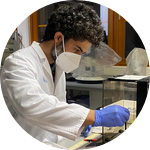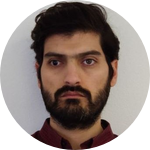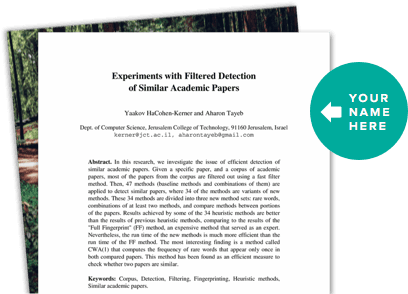About This Project
Microplastics (MPs) and antibiotic resistance genes (ARGs) are emerging contaminants spread widely in the aquatic environment. MPs can provide a niche for antibiotic-resistant bacteria and selectively enrich ARGs, indicating that MPs can increase the risk of ARGs transmission. Utilizing artificial intelligence (AI) and machine learning, we aim to pinpoint bacterial groups prone to acquiring ARGs on MPs in freshwater ecosystems to address the antibiotic resistance menace effectively.
Ask the Scientists
Join The DiscussionWhat is the context of this research?
Once MPs are present in aquatic ecosystems, a biofilm appears on its surface, including pathogens carrying ARGs. We identified these biofilms as 'hot spots' for horizontal gene transfer (HGT). This process affects bacterial evolution and facilitates the spread of various traits, including ARGs. The increasing resistance of bacterial groups to antibiotics poses a significant threat to public health worldwide. Our ongoing experiments focus on understanding how different types of MPs, contribute to HGT. We are keen to know which bacterial groups in freshwater bodies are more likely to attain ARGs after colonizing the MPs. AI will be implemented to find the classification pattern of the bacterial groups acquiring ARGs.
What is the significance of this project?
Identifying bacterial groups more prone to acquiring ARGs will provide insights into how antibiotic resistance spreads in aquatic environments in presence of MPs and predict its environmental impact. This will shed light on the mechanisms driving the increasing antibiotic resistance of bacterial groups in aquatic ecosystems. A culture-independent technique based on the expression of the green fluorescent protein gene (gfp) will be used to monitor HGT. This will also comprise non-culturable or uncultivated microbes. This will be achieved by using a flow cytometry-based method to quantify and isolate antimicrobial resistant bacteria. Moreover, the use of AI and pattern recognition will make the prediction of ARG transmission in presence of MPs possible.
What are the goals of the project?
The project aims to investigate how MPs influence the spread of ARGs among microbial communities in aquatic ecosystems. By studying HGT dynamics within biofilms on MPs, we seek to identify bacterial groups prone to acquiring ARGs and assess the environmental implications of MP-mediated HGT. The data generated will help to predict the permissiveness of ARGs in any water body with known bacterial groups in the presence of MPs. Overall, the study will provide a more comprehensive understanding of the influence of MPs on ARGs transfer and pave the way for strategies to mitigate the spread of antibiotic resistance in natural habitats.
Budget
The total budget for the project is $10,000 USD. A rented car will be used to access the sampling sites. The project involves collecting samples from three different freshwater lakes, with each site having two spots. There are two analysis phases, one for the liquid phase and one for the particle phase, resulting in approximately 60 samples for analysis. The majority of the budget will be allocated to 16S rRNA gene sequencing. The work will be presented at an international conference.
Endorsed by
 Project Timeline
Project Timeline
Three freshwater lakes in Germany based on different physicochemical parameters will be selected. Water samples will be collected and the microbial community will be gradually acclimatized to the desired temperature. MPs will then be incubated along with the microbial community. Flow cytometry will quantify and sort the bacteria that acquire the ARG during HGT. The sorted community will be identified. Following data analysis, a manuscript will be prepared for publication.
May 14, 2024
Project Launched
Jun 03, 2024
Water sampling
Jun 15, 2024
Optimization of growth conditions
Jul 01, 2024
Incubation of MPs
Jul 15, 2024
Flow cytometry and sorting
Meet the Team
Affiliates
Affiliates
Jaffer Yousuf
https://www.researchgate.net/p...
I am Jaffer Yousuf, hailing from Pir Panjal range of the Himalayas Kashmir, India, where I spent my formative years near streams. Witnessing the rapid degradation of water bodies led me to study aquatic fauna and flora during my four years of undergraduate studies. During my master's, I focused on assessing microplastic pollution along the west coast of India and its impact on marine life. Later, I studied environmental law and policy for a year to better understand green law issues poignant worldwide, particularly in the Indian context. I was accepted as a PhD student in Prof Hans Peter Grossart`s lab. at IGB, Berlin, to explore the ecological impacts of microplastics and nanoplastics pollution in aquatic environments.
More than two years have passed since I started the PhD and it has been truly inspiring. I have conducted experiments seeking answers on how the presence of microplastic particles in water bodies can be detrimental to the microbial ecosystem. We found that microplastics act as a hot spot for antibiotic resistance gene (ARG) transfer. These genes confer resistance to pathogenic bacteria against antibiotics. Antibiotic resistance is already a worldwide menace that seems to be accelerated by microplastics in the environment. There is much more to know about this direction!!!
Hossein Amini
Hossein is an environmentalist and data scientist specializing in machine learning. He holds a doctorate in environmental engineering from the University of Trento, Italy. He is passionate about using his data science skills to help solve environmental problems. He has worked on projects ranging from analyzing the impact of climate change on meandering rivers to predicting pollution levels in Tidal range structures, to using machine learning models(raging from Causal inference to supervised and unsupervised learning models) to study the ecological conditions of freshwater and inland water. Hossein has extensive experience in machine learning and has developed models to interpret water quality, identify pollution sources, and analyze satellite imagery. He believes that machine learning can be a powerful tool in the fight against climate change and works to integrate data-driven solutions into environmental policy. In his free time, Hossein enjoys hiking, birdwatching, taking photos and videos, and exploring the outdoors. He is also an advocate for sustainable living and actively promotes eco-friendly practices in his community.
Lab Notes
Nothing posted yet.
Project Backers
- 0Backers
- 0%Funded
- $0Total Donations
- $0Average Donation




